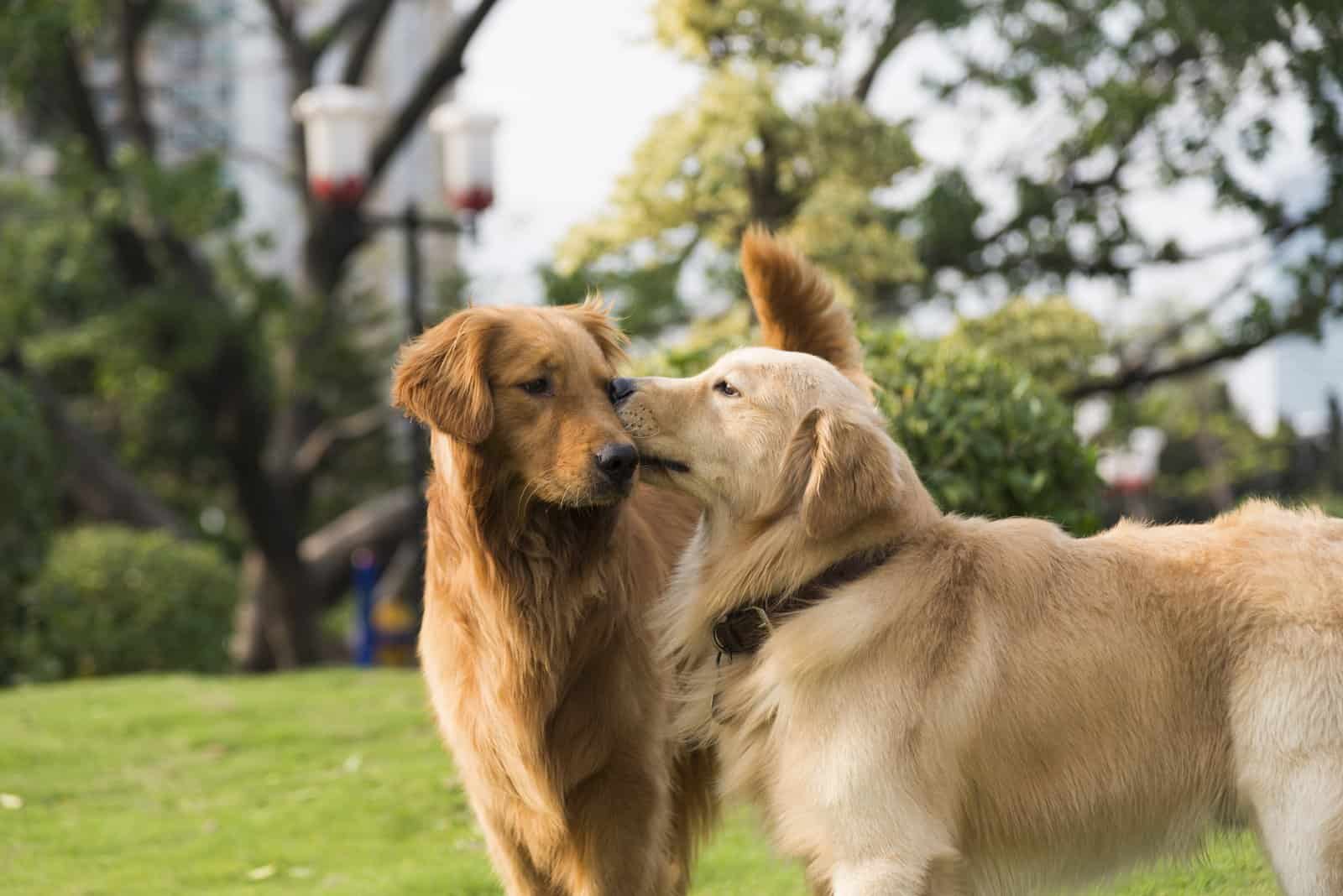If a dog has reached sexual maturity, it is ready for mating.
According to much research, dogs can recognize their siblings if they have spent up to 16 weeks of life with them. But, that still doesn’t mean that dogs are aware of the fact that they shouldn’t mate with their siblings.
Mating between dogs that are blood-related is not an unknown phenomenon; moreover, it is very widespread and dog breeders, as well as dog lovers, are very well acquainted with this.
So, can brother and sister dogs have puppies?
Yes, they can, but it is not recommended! Some breeders inbreed their brother and sister dogs to get puppies with the excellent predispositions that their parents have. This practice is not desirable, and it can often be dangerous.
Animals do not possess this kind of consciousness, unlike people do – of which, reason dictates that they should not have children with their blood relatives.
We bring you all the possible reasons, threats, and consequences of such acts below.
Can Brother And Sister Dogs Have Puppies?
The simplest answer to this question would be that brother and sister dogs can have puppies, but that does not mean that they should.
If you find yourself in a situation where your two dogs, a brother, and a sister, have mated with each other and had puppies, you should be familiar with a few things. Although such dogs can be perfectly healthy, there is still a high possibility that they will have certain health problems.
Even if a brother and sister dog come from different litters, if they mate, abnormalities still can occur in their puppies.
If not in them, some of the next generations of their dogs could have a genetic anomaly. So, all dog owners should be well aware of the risks of a brother and sister dog having puppies together.
What You Should Know About Inbreeding
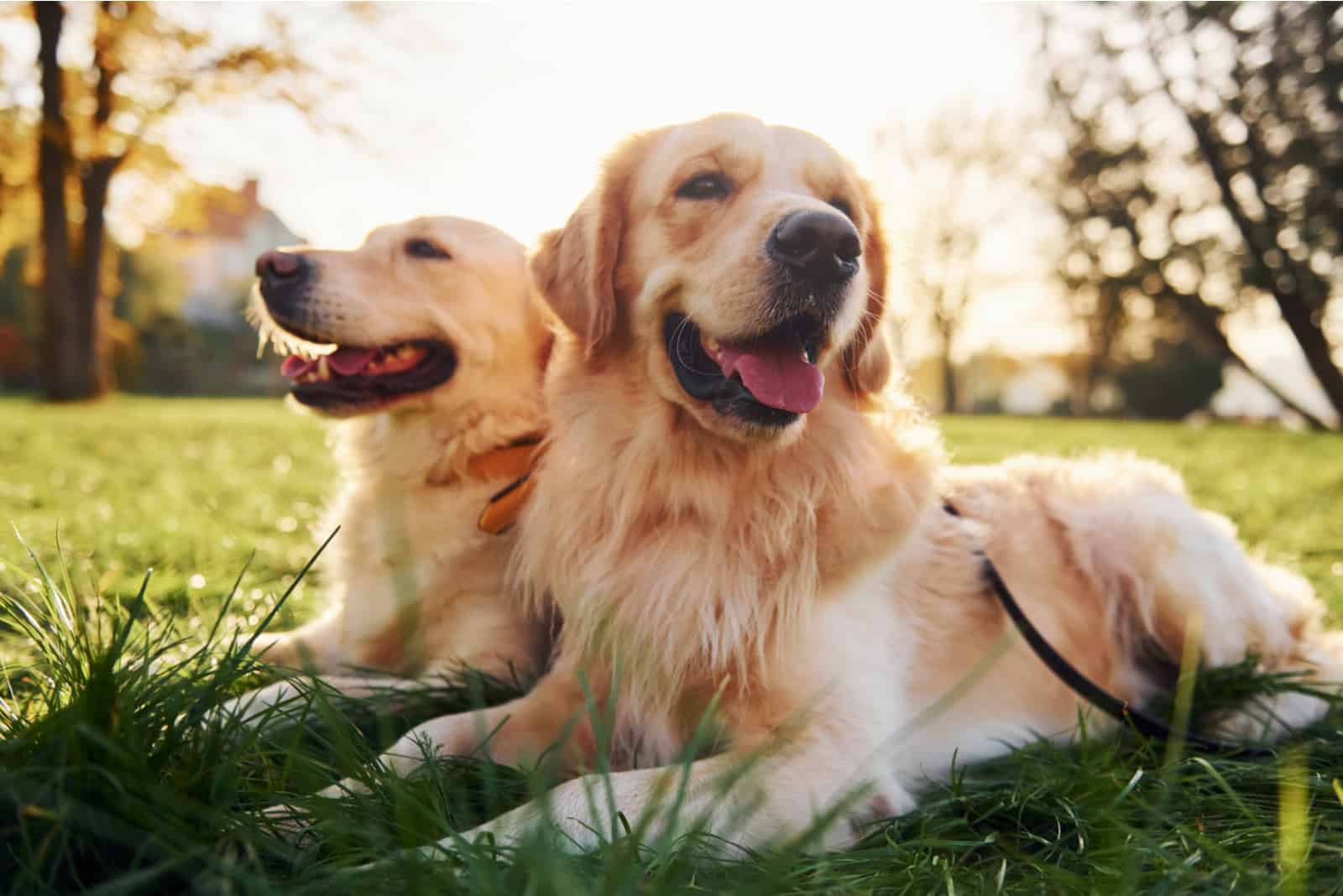
Inbreeding refers to two related dogs producing puppies together. For example, it might occur between parents and their children, or between siblings.
It is known in general how a high level of inbreeding can hurt the puppies’ health, but we cannot know for sure as to what extent the consequences of inbreeding might be.
Inbreeding Coefficient
Nowadays, we have assistance in the desire to find the degree of inbreeding: with the help of the Coefficient of Inbreeding, we get to know whether it is possible for puppies to have inherited two copies of the same gene found in both of their parents.
There are a couple of results you might get from this calculator:
- 0%: this means that no sign of inbreeding was found in a dog.
- 12.5%: this percentage shows how there might be inbreeding between dogs’ grandparents.
- 25%: this percentage shows how there was probably mating between father and daughter, or between siblings.
So, if you are wondering whether two dogs should mate, besides checking the temperament and health tests of both of these dogs, you should also check their inbreeding coefficient.
8 Most Inbred Dog Breeds
The two main reasons for inbreeding are the desire for dogs to inherit certain desirable traits, and the desire to prolong dog breeds that originally had a smaller population. Many dogs we adore today are a product of inbreeding for many years.
Well, let’s look at which eight dog breeds are best known for inbreeding.
Norwegian Lundehund
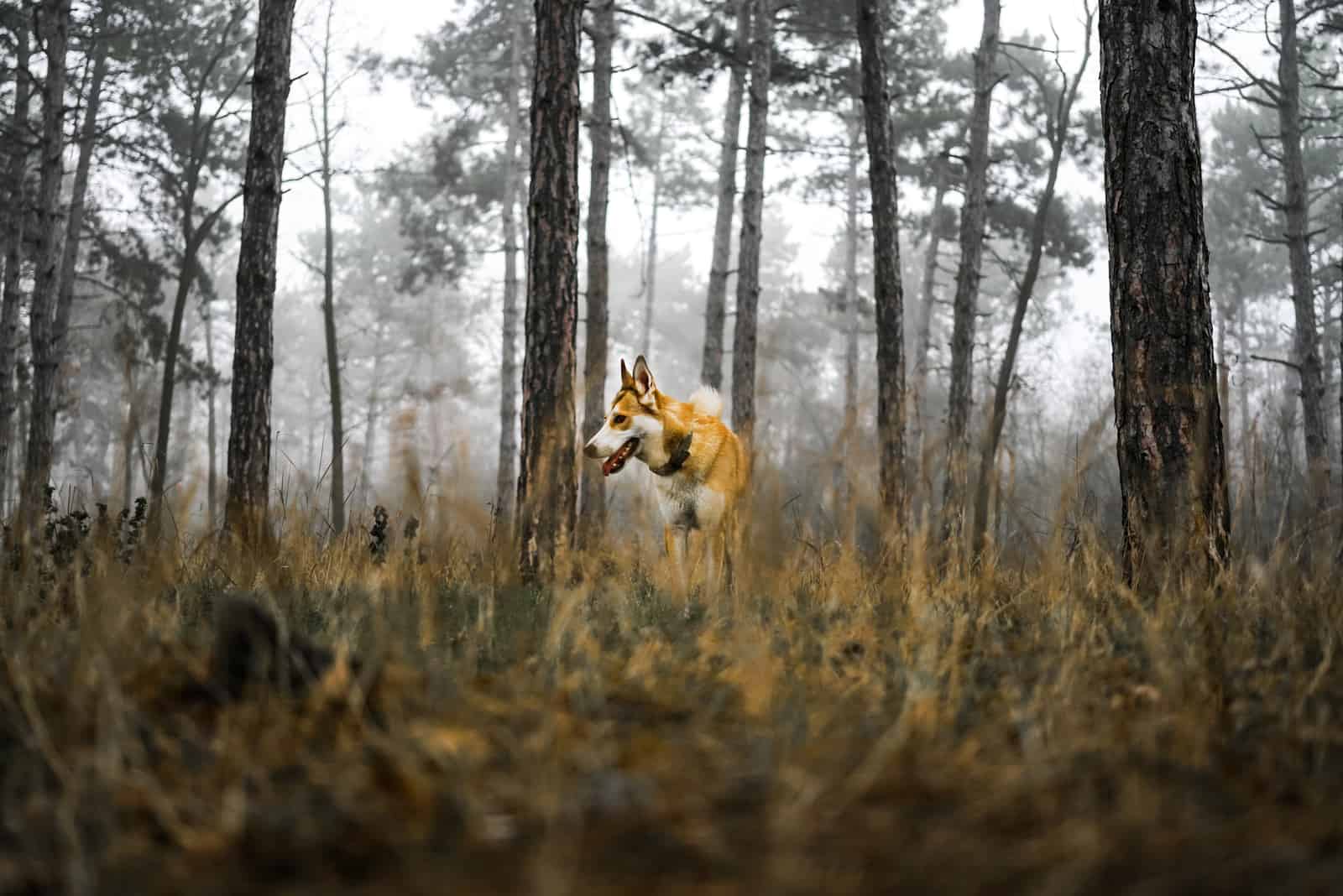
The Norwegian Lundehund is by far the most famous in the world for inbreeding. After World War II, the population of dogs of this breed was so reduced that there were only one female and her five puppies left. In order for this dog breed to survive, all these dogs mated with each other.
So, if there was no inbreeding, these dogs would not exist at all today.
Labrador
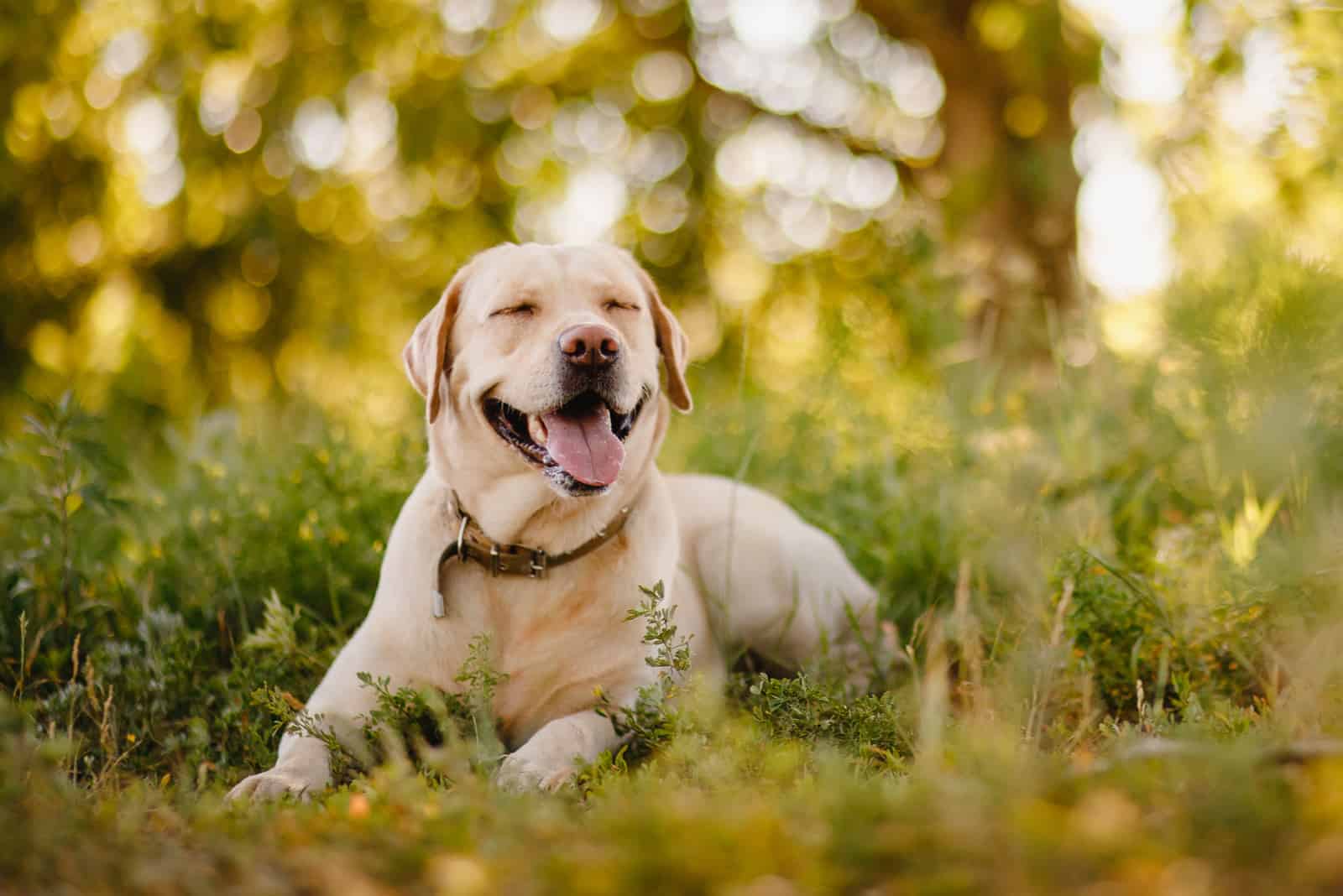
One of the most popular family dogs, the Labrador is also known for its high inbreeding coefficient. One of the consequences associated with the inbreeding of these dogs is frequent overweight.
Golden Retriever
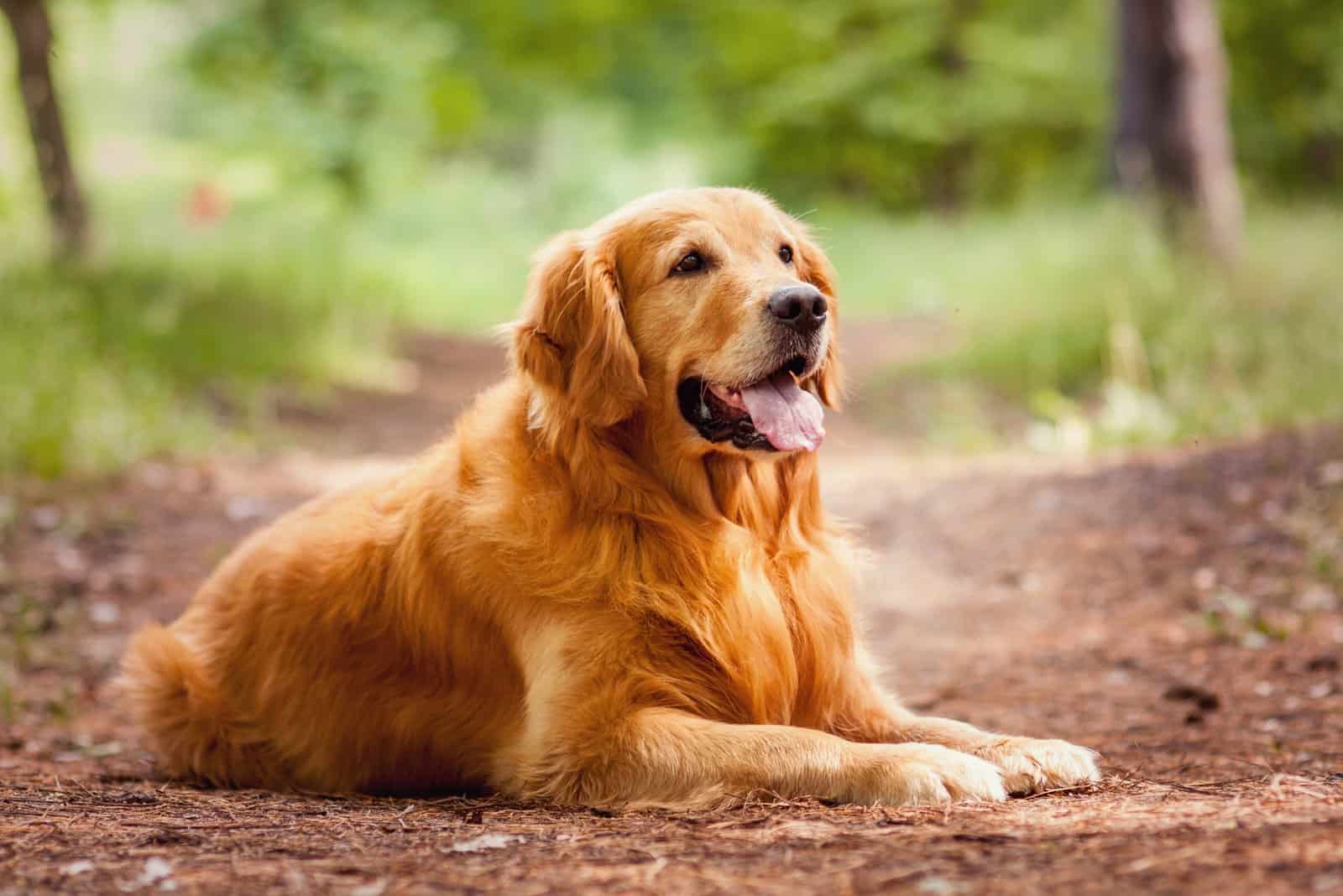
To ensure that Golden Retrievers inherit the beautiful fur color and temperament of their parents, in the past, breeders often undertook mating of Golden Retriever brother and sister dogs.
The consequence associated with inbreeding of these dogs was frequent health problems, which were mostly manifested in the high incidence of cancer, skin problems, and hip dysplasia.
Bulldog
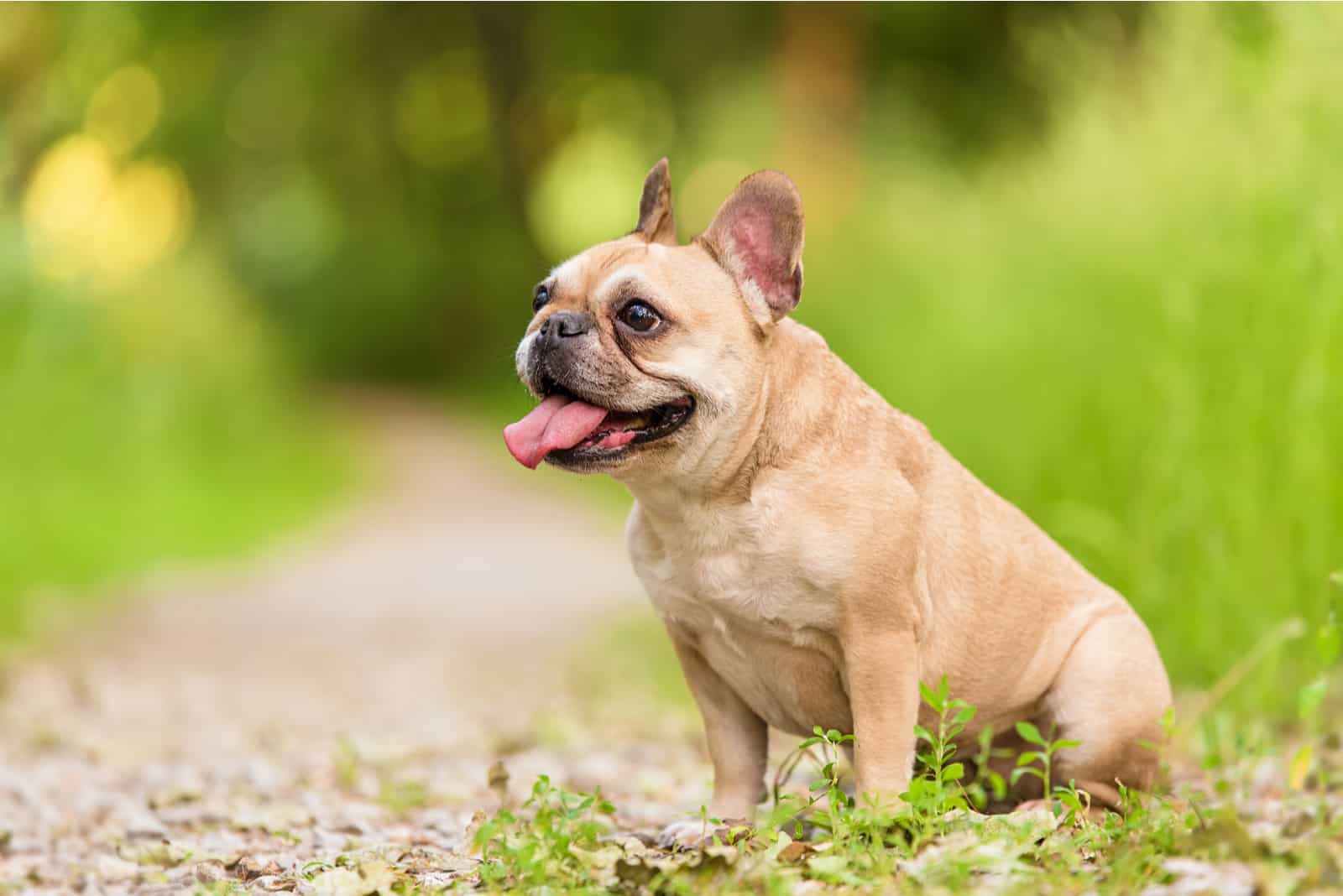
Bulldogs were once known as distinctly strong fighting dogs. To continue to get dogs with such characteristics, breeders often mated Bulldog siblings; however, inbreeding has left significant negative health consequences on modern Bulldog dogs.
So, many Bulldogs today are susceptible to various diseases such as allergies, skin diseases, and obesity.
Rhodesian Ridgeback
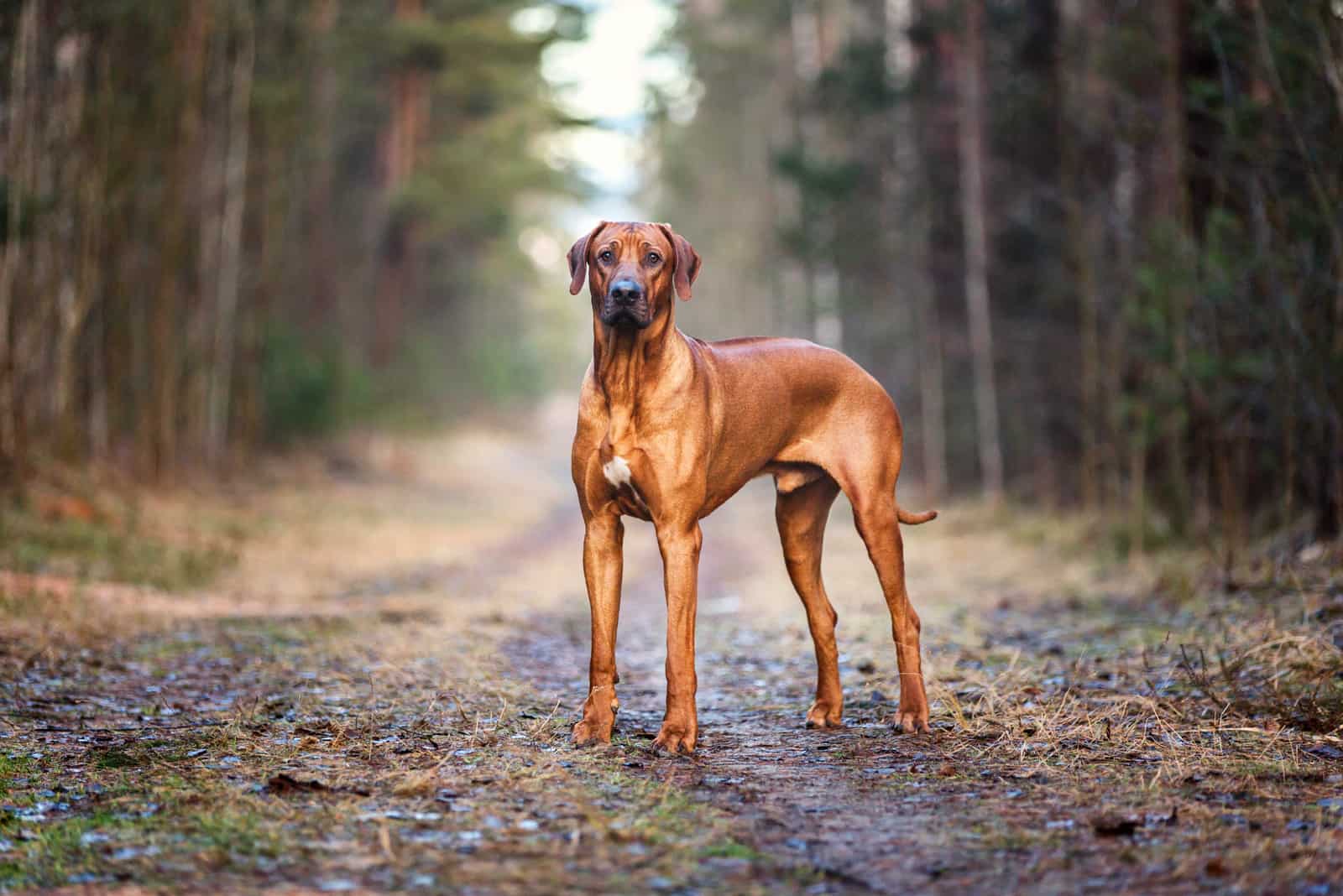
These large dogs have historically proven to be excellent watchdogs and hunters. Therefore, breeders wanted to be sure that these dogs would inherit such excellent characteristics in the future, so they underwent frequent inbreeding of related Rhodesian Ridgeback dogs.
But, thanks to such procedures, Rhodesian Ridgeback dogs have a significantly reduced lifespan today.
German Shepherd
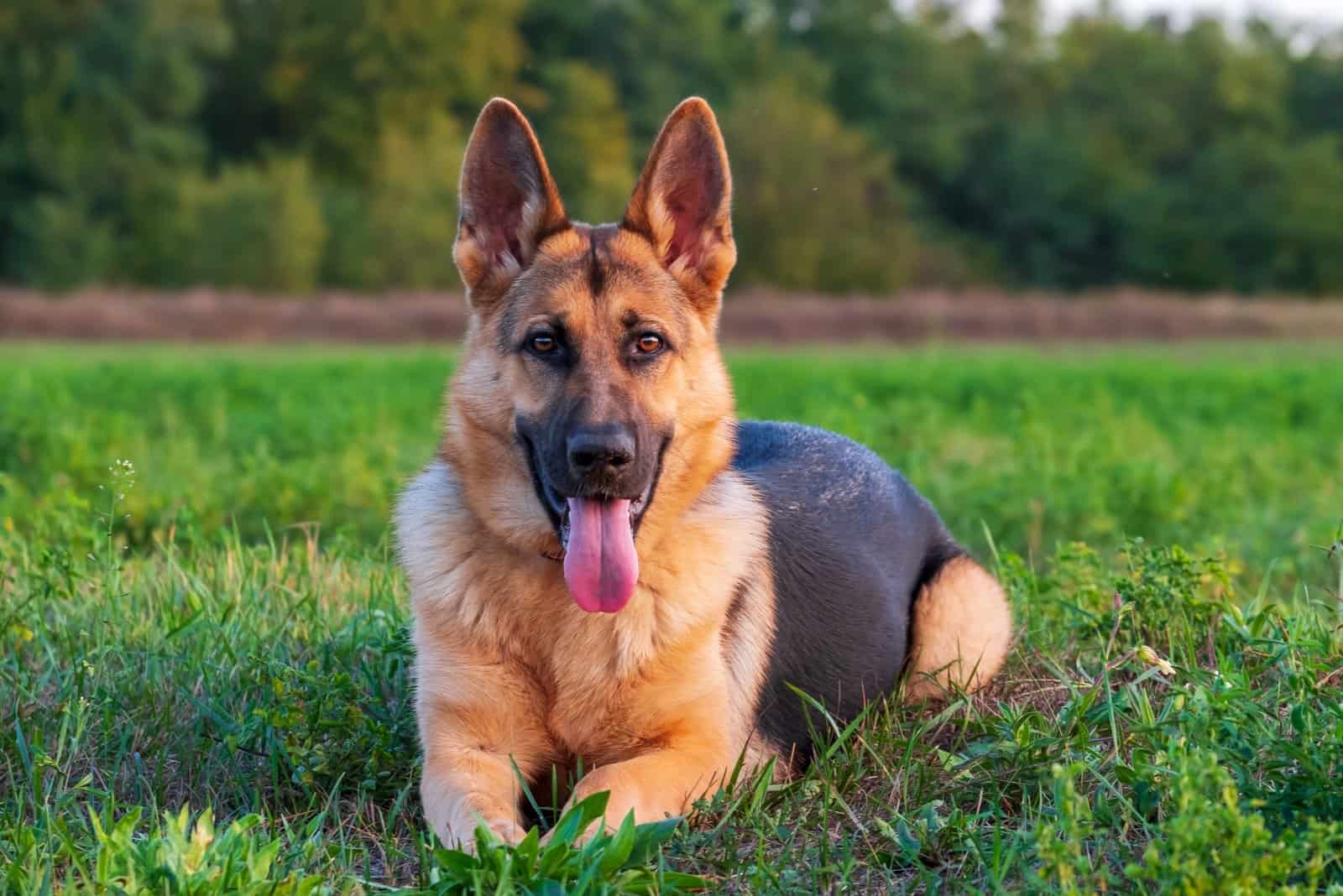
One of the most famous guard dogs, and one of the most intelligent breeds of dogs – the German Shepherd is also known for its high inbreeding coefficient.
Because of this, some German Shepherds show extreme aggression, and some have unfortunately inherited genetic abnormalities.
Dachshund
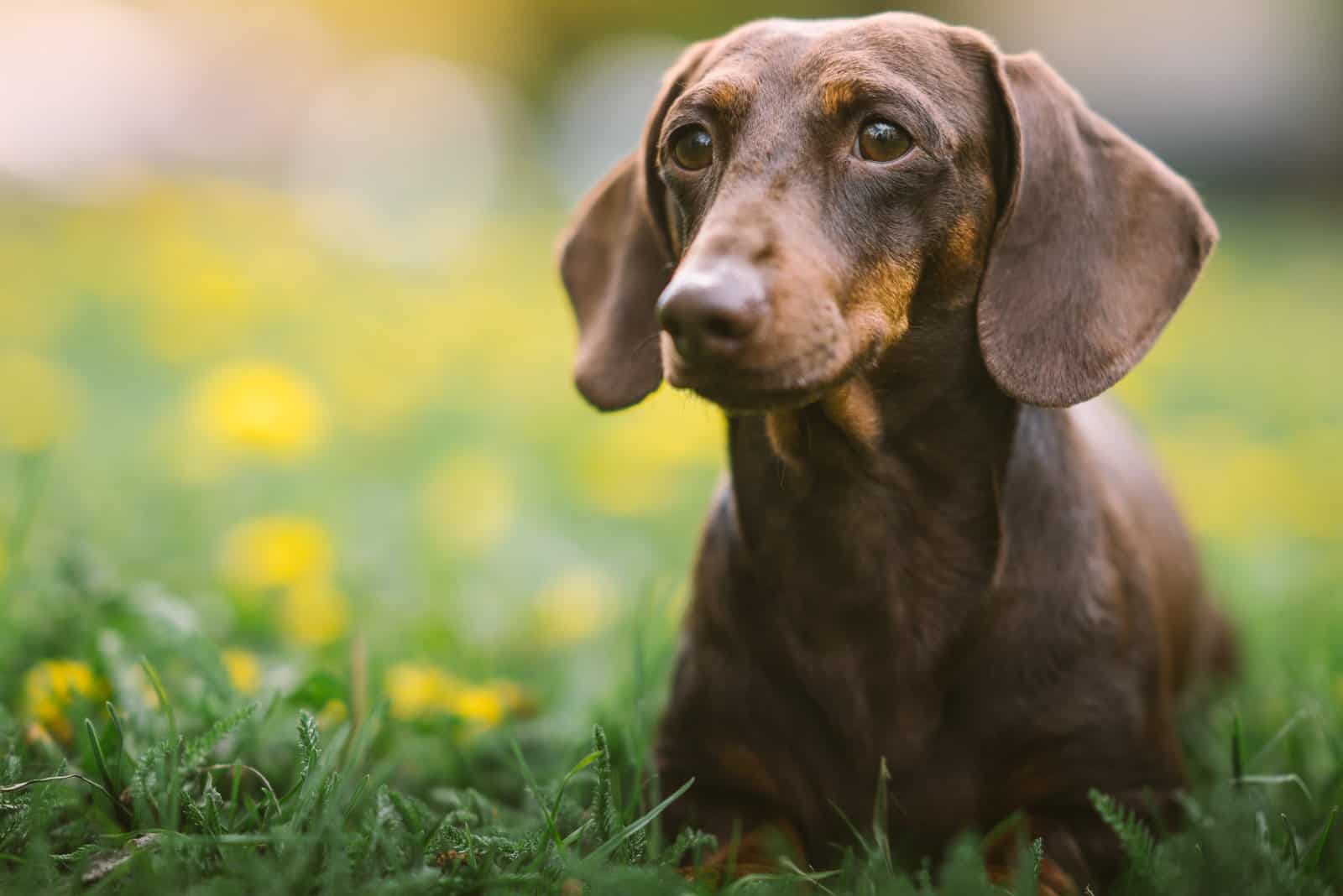
These hunting dogs were often inbred in the past. Due to this, many Dachshund dogs have back problems that can even lead to paralysis.
Boxer
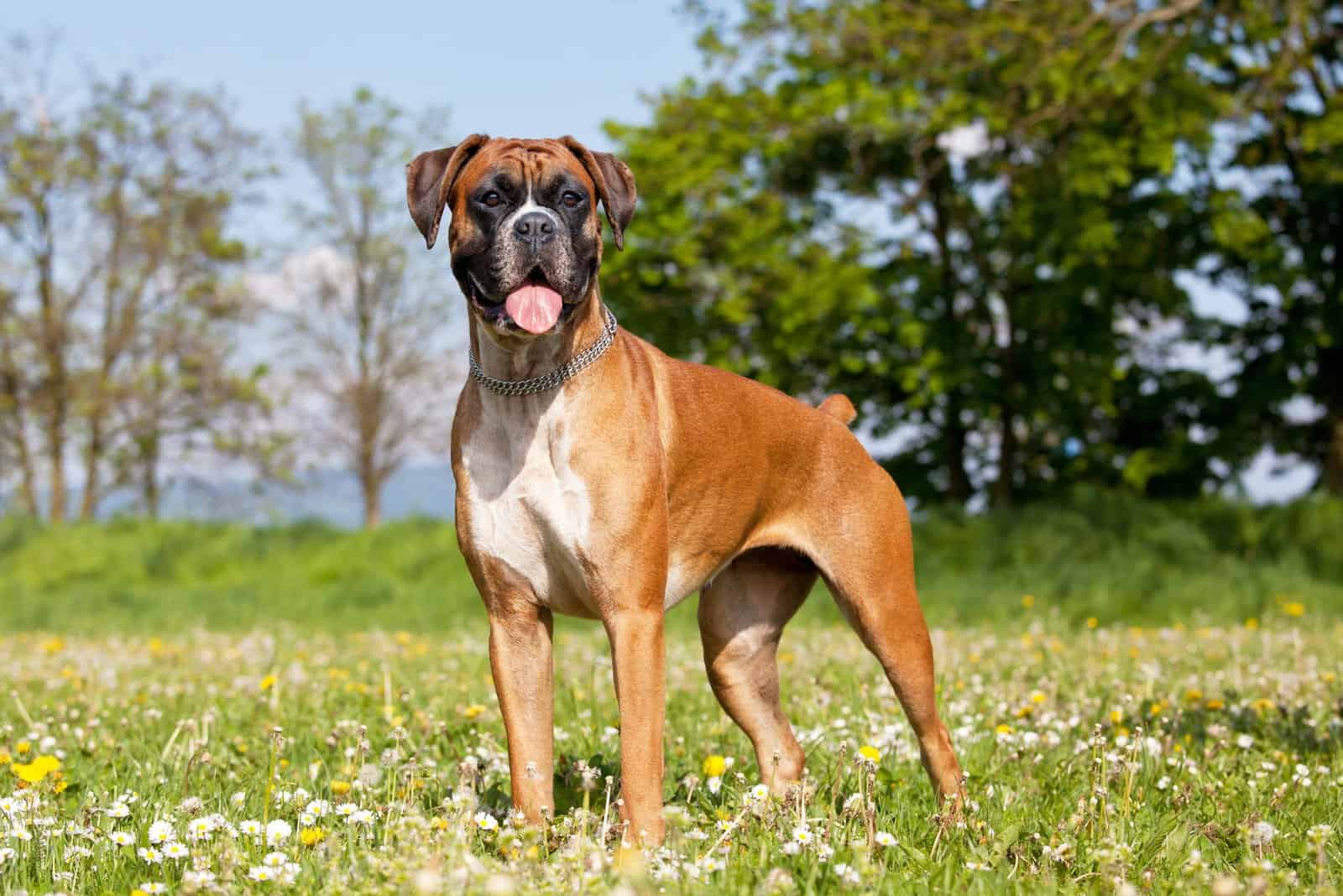
Known for their muscular body and somewhat intimidating look, Boxers are dogs that were also often inbred throughout history. Diseases known as a consequence of inbreeding in this dog breed are muscle underdevelopment and various types of cancer.
These listed dogs are best known for their high inbreeding coefficient. However, this does not mean that mating of dog siblings has not been undertaken in other dog breeds.
Moreover, the vast majority of dogs we know and love today arose as a result of inbreeding between blood-related dogs: father-daughter, mother-son, or sibling dogs.
What Would Happen If Brother And Sister Dogs breed?
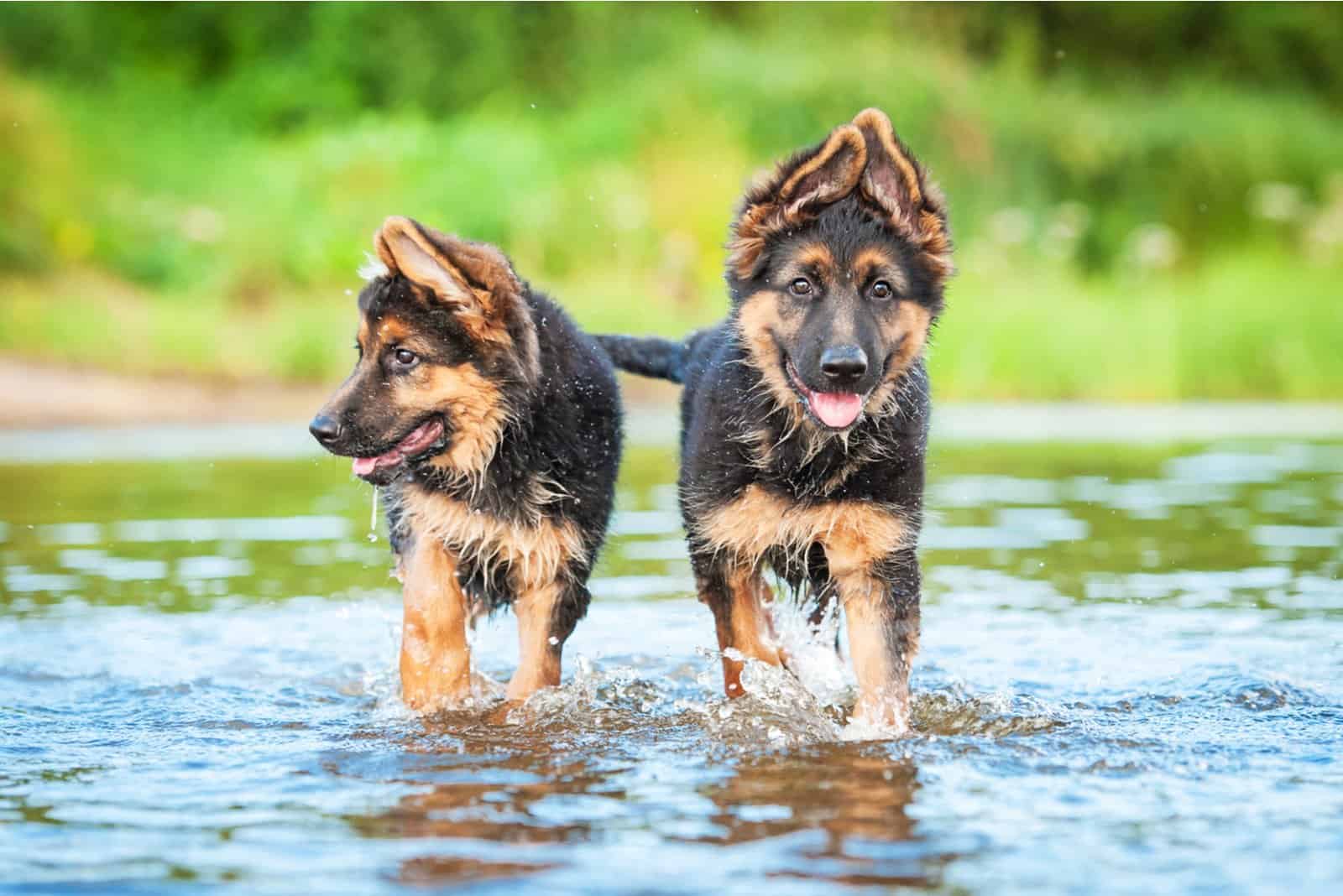
Every professional and ethical breeder would advise you to avoid breeding a brother and sister dog. Why? Because this kind of breeding might cause the siblings to pass on a recessive disease to their descendants.
The only safe and ethical way of breeding dogs is to breed dogs that are not blood-related. Dogs that do not have any ancestors do not share the same genetic material, and therefore, are not in danger of mixing the gene pool.
Even if you think that inbreeding might not be such a bad idea, since you have two perfectly healthy dogs, don’t get fooled! Inbreeding might cause serious deformities in puppies since the genetic material they should inherit would be unnatural.
However, even if you take good care of your dogs, inbreeding, also called linebreeding, still might occur without you wanting it to happen. When they reach their sexual maturity, male dogs will look for female dogs to mate with, even if those dogs are their siblings in order to help relieve their sexual frustration.
So, the best idea to avoid inbreeding is to separate female and male littermates when they become sexually active. Although the inbred dogs might come out to be perfectly healthy, if brother and sister dogs breed, genetic defects might occur.
We will describe all possible health issues that breeding dog siblings might cause below.
Why Is It Not Advisable To Breed Brother And Sister Dogs?
Now that we know the answer to the question, can brother and sister dogs have puppies?, let’s find out why this is not advisable.
According to the American Kennel Club, the main purpose of breeding is to produce better dogs that will become like family members for many humans. So, if you are a responsible dog breeder, you would want to do your best to avoid potential problems in your puppies, correct?
Some breeders justify the breeding of siblings by saying how, if there was not a certain degree of inbreeding, some of the dog breeds might have become extinct. Still, inbreeding brings far more terrible consequences than the good ones. This is the reason why it is not advisable to inbreed brother and sister dogs.
Is It Unethical To Breed Brother And Sister Dogs?
Yes – breeding a brother and sister dog is unethical! If we know that there is a great possibility that the quality of life and the health of the puppies will be impaired, no matter in what percentage, such a procedure must be characterized as unethical.
If you are hoping that the breeding of sibling dogs will produce puppies with desirable personalities, you should not ignore the other side-effect of the inbreeding process, which is much more harmful.
Ethical treatment of inbreeding refers to checking the health of both dogs, as well as checking the inbreeding coefficient before engaging in the mating process of dogs.
Although we are all aware that breeding brother and sister dogs is unethical, it is still considered legal. As long as animals are not being tortured, we cannot say that some process is illegal.
How Come Some Breeders Justify Inbreeding?
Years ago, inbreeding was very common among dog breeders. The main reason for this was their attempt to produce dogs that would inherit all the desirable traits from their parents, and in this way, breeders were able to improve the dog’s bloodline.
So, inbreeding was justified by the excuse of producing predictable traits in order to create the perfect dog. However, this practice was proven to be wrong, so most experienced breeders today don’t recommend inbreeding.
Even if dog breeders who intend to breed siblings are very experienced and professional in their work, this does not mean that such mating will not lead to complications and health consequences for puppies.
Sibling mating does not always cause birth defects in puppies, but it is necessary to know that breeding non-related dogs significantly decreases the possibility of health issues in puppies.
What Are The Risks Of Brother And Sister Dogs Breeding?
Recessive genes found in brother and sister dogs that were inbred might cause several health issues in their puppies. Inbreeding also affects the overall life quality and the lifespan of puppies.
Here is a list of the three most common health problems with inbred puppies.
1. Genetic Abnormalities
You probably heard that certain health issues are related to all dog breeds such as hip dysplasia, problems with the eyes or the heart, and similar. But, the biggest problem that genetics might bring is birth defects.
Inbreeding might cause certain birth defects: while some of them can be solved with the help of professionals, some mean a lifetime of pain for the puppy. Some of the most common inherited health issues that inbred puppies deal with are the following:
- Obesity
- Hip dysplasia
- Low energy levels
- Liver failure
- Blindness
- Deafness
If you want to find the answer to the question, Can brother and sister dogs have puppies?, be aware that there is a big possibility for recessive genes to produce two copies of the same bad gene. Genetic conditions might be severe, preventing the puppies from growing into healthy and happy dogs.
2. Problems With Fertility
Female dogs impregnated by their brother dogs have a big chance of experiencing problems with their pregnancy and labor. Also, the inbred dogs have a bigger possibility of delivering a litter of puppies with serious health issues.
Furthermore, inbred females might suffer from reduced fertility, and are more likely to deliver smaller litters.
An additional problem with inbred female dogs is the increased chance of miscarriages. In some extreme cases, complications can occur that eventually cause the death of the female dog.
3. Weakness In The Immune System
Due to inbreeding, the genetic diversity is reduced in these dogs. Inbred puppies are more likely to have health problems since their immune system is weak from their birth. Due to this, they are prone to colds, bacteria, and infections.
Puppies with these health issues need to go to vet checkups more often than other puppies. Being sick often seriously impairs the quality of their life.
Three Behavioral Problems With Inbred Puppies
Besides a weak immune system and possible physical defects, inbreeding has been proven to cause certain behavioral problems in puppies. What are the most common ones?
1. Aggression: Inbred dogs show aggressive behavior more often. They might show hostile behavior towards people and other animals despite training.
2. Anxiety: Anxiety is also a common condition in inbred dogs. How does it manifest? Inbred dogs are more likely to bark loudly for no reason, not pay attention to their owners’ commands, or not to show any kind of affection to their human families.
3. Depression: If you notice your dog is not enjoying any of the typical dog activities, does not ask for food, or show any urge to play with you, this might be a symptom of a depressed inbred dog. If this is the case, the life quality of the dog might be impaired, which could significantly reduce the dog’s lifespan.
Inbreeding Has Occurred: What Can You Do?
We all know that if brother and sister dogs are having puppies, this doesn’t have to be the product of selective breeding: dogs are just animals with the instinct of mating, so this can happen without human intention.
No matter what way inbreeding was done, it is necessary to take extremely good care of your dog. Be aware that there is still a possibility that your dog will deliver healthy puppies, so stressing and worrying won’t help you.
What you should do is give proper food to your pregnant dog and decrease her activities. Also, the male dog should be kept away from the female. The only way to be sure that these situations won’t happen is to completely separate brother and sister dogs after they achieve sexual maturity.
Furthermore, if brother and sister dogs need to be kept together, the solution for the female not to get pregnant by her brother would be to spay her.
Final Considerations
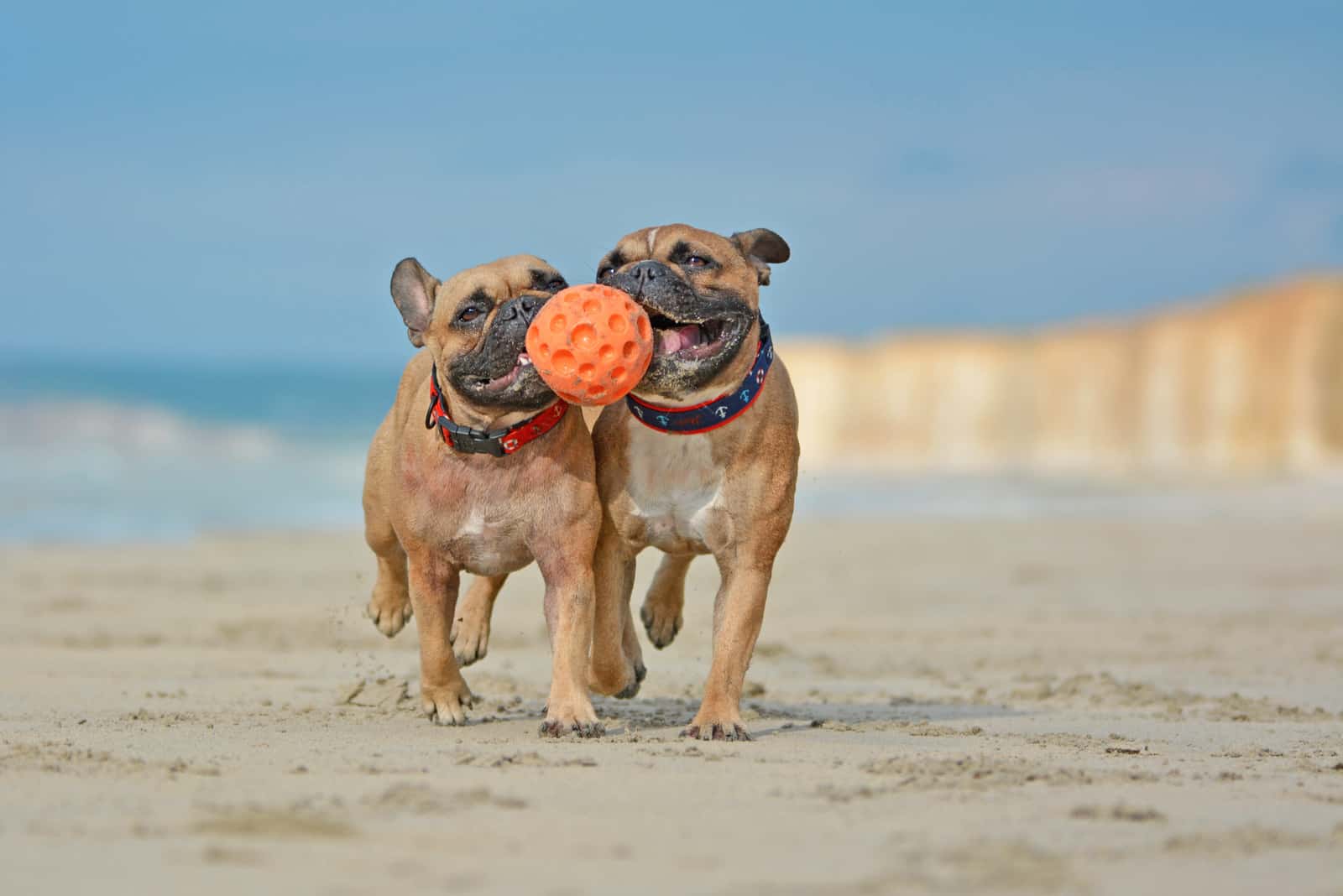
Hopefully, this text has helped you find the answer to the question, can brother and sister dogs have puppies? Technically speaking, this may occur, and very often, dogs are not aware of who they should mate with, and why they should not have puppies with their siblings.
History shows us how inbreeding was a very common occurrence in all parts of the world and with all kinds of dog breeds. According to some opinions, certain dog breeds would have gone extinct if there was no inbreeding.
However, today, we know better. Inbreeding might affect the health and the well-being of puppies to an extreme level. Some of the biggest negative effects of inbreeding refer to fertility problems, a poor immune system, and lower life quality of inbred puppies.
Most reputable breeders would strongly advise you not to breed brother and sister dogs.
I hope this article will help you understand all the possible consequences of inbreeding. We are all in love with our puppies and want them to have the best possible life, correct? So, let’s show our responsibility and care for animals by checking the inbreeding coefficient before we start breeding!
READ NEXT:
• Can Dogs Get Sexually Attracted To Humans? What You Need To Know
• How To Tell If Your Dog Is Pregnant? 14 Signs
